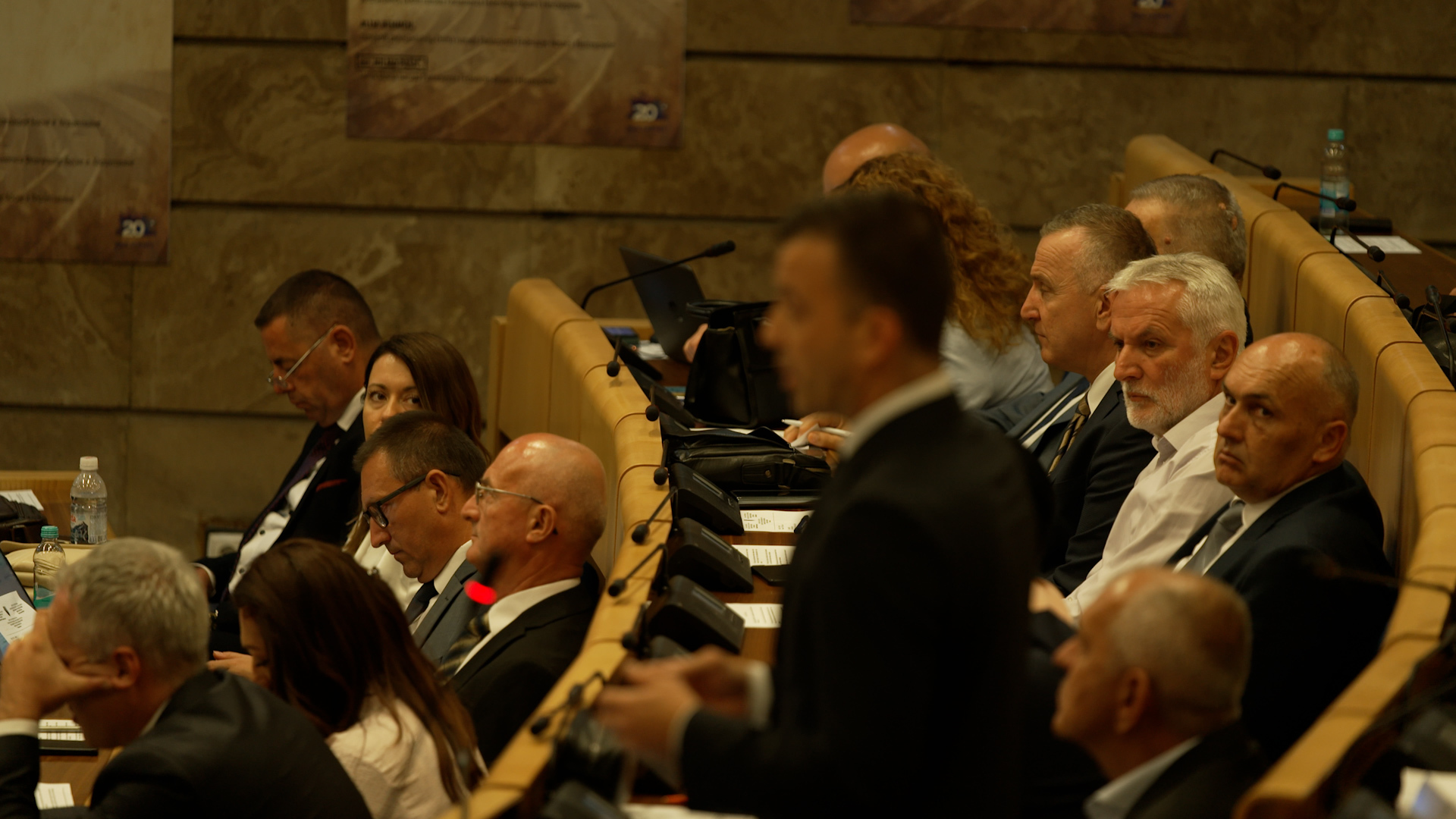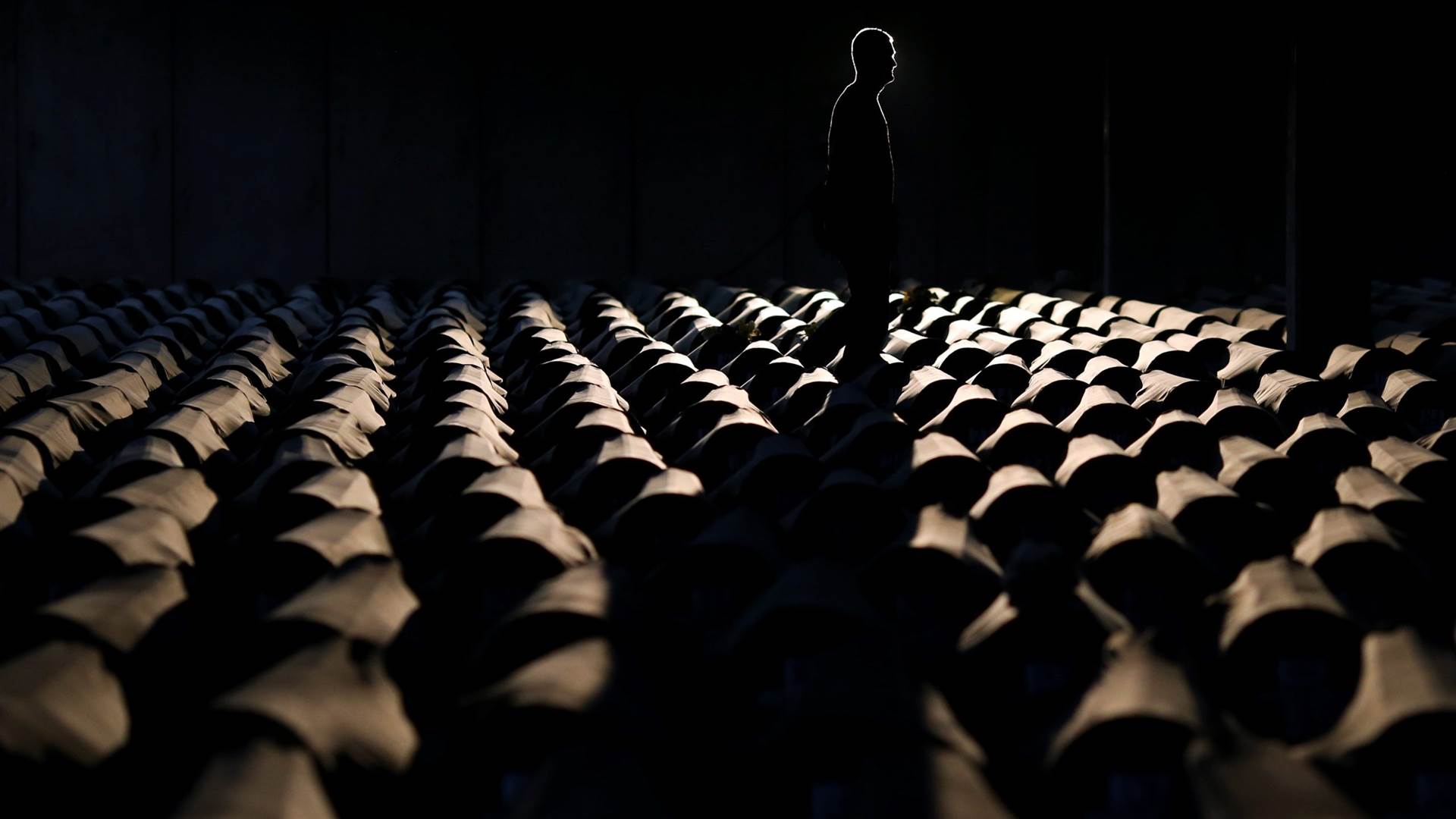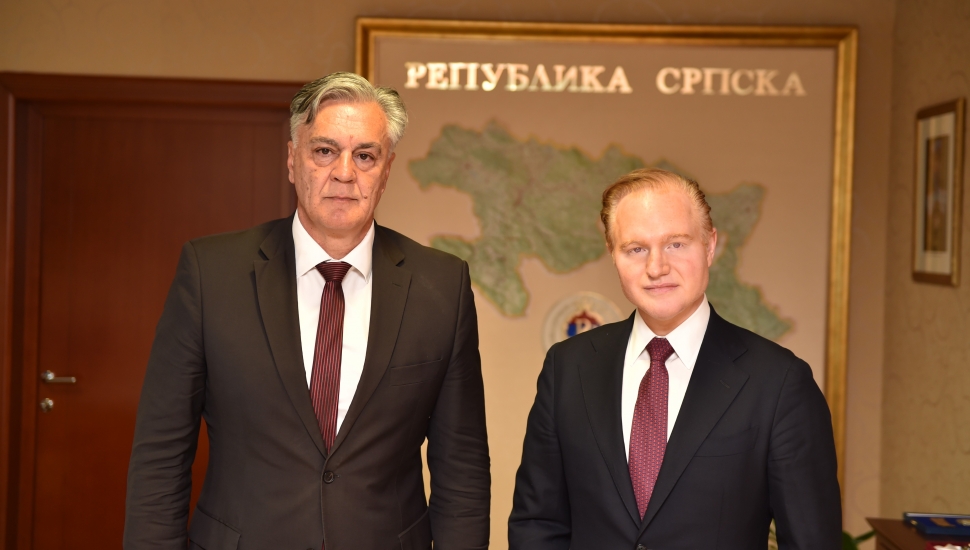This post is also available in: Bosnian
Only a handful of locals were left in the mainly Croat-populated village of Susanj near Zenica in central Bosnia when the shooting started on June 8, 1993.
“We were few in number, we could not even defend ourselves,” recalled one of them, Stjepan Hrgic, who was 50 at the time.
“There were too many of them when they attacked us, hundreds and hundreds of them. Women and children had left the village, and only the elderly who could not or did not want to leave had stayed. They killed eight of them next to that house, over there,” said Hrgic, pointing out the spot.
At least nine civilians aged between 60 and 85 were killed that day in Susanj, when the village in central Bosnia ended up in the crossfire of the conflict between the Bosniak-led Bosnian Army and the Bosnian Croat military force, the Croatian Defence Council.
According to a judgment handed down in a trial at the Hague Tribunal, there was no direct combat in Susanj on June 8, 1993. Former Bosnian Army officers also deny fighting in Susanj. But domestic courts have said that there were at least nine civilian deaths that day, and almost three decades later, relatives of the victims are still waiting for the perpetrators to face justice.
There had been warnings that Susanj and neighbouring villages mainly inhabited by Croats in the Vitez and Travnik areas would be attacked by the Bosnian Army at the start of June 1993. But many villagers, particularly the elderly, had not taken the warnings seriously.
The impact of the wartime violence can still be seen today. Few people who fled Susanj because of the conflict have since returned and nowadays the village, which had 430 residents before the war, is completely depopulated, with only around 20 people aged between 60 and 90 living there.
Anto Vidosevic was the first person to return to Susanj after the war. In 1999, he came back to the house from which his 83-year-old father had been taken away on June 8, 1993 and then killed in the nearby village of Ovnak. He lost his son Zeljko that day too.
“He was 23. He was not killed on the frontline, but while he was trying to flee from the village,” Anto said.
Friar Ivo Markovic, a professor at the Franciscan School of Theology in Sarajevo who received an award by Tanenbaum Centre for Interreligious Understanding in New York for his work for peace during and after the war, also lost a close relative in Susanj that day – his father, who was killed at the age of 74.
“Four of them were taken to the frontline and shot. One was 85 years old. This was the liquidation of the elderly,” said Markovic.
“They killed all the men they came across. They killed a young man in front of his mother, who was trying to hide him. This hurts me most of all because I am a peace worker, I work on reconciliation,” he added.
He noted that “the fundamental condition for having successful reconciliation is justice”.
However, no one has even been prosecuted for committing war crimes in Susanj. The only person who has been convicted is member of the Bosnian Army’s Seventh Muslim Brigade, Ragib Rizvic, who was found guilty of killing a villager called Kazimir Markovic.
However, he was convicted of murder, not of committing a war crime. The Cantonal Court in Zenica sentenced Rizvic to nine years in prison in 2003.
‘I could not let them kill my neighbours’
Stjepan Hrgic, who survived the violence in 1993, at his house in Susanj. Photo: BIRN.
As well as the civilians who were murdered that day in 1993, surviving residents of Susanj claim that two Croatian Defence Council prisoners of war were also killed.
One of them, Jordan Vidosevic, was in his early 20s. According to witnesses’ statements, he surrendered without resistance when soldiers found him, uniformed and armed, under a staircase in one of the houses in the village.
A witness identified only by the initials A.M. told the investigators who first probed the case that she heard a burst of gunfire from the front door of the house where she believes that Vidosevic was killed.
“His mother was with us in the room, shouting and saying it was her son. Five minutes later, we were forced to leave the house. We saw blood on the doorstep, but the body had already been removed,” witness A.M. said in her statement.
According to witnesses, another Croatian Defence Council fighter, Ilija Markovic, who had been injured, was taken from a basement to a nearby field and shot dead.
Some of the residents of Susanj believe that the death toll might have been higher if it were not for the courageous intervention of one villager, Sacir Muslic, who like the troops involved in the attack was a Bosniak.
The Croats who survived the attack were accommodated in a house together, and Muslic stood outside it and prevented Bosnian Army soldiers from entering.
Locals said that Muslic declared that the soldiers would first have to remove him, a fellow Bosniak.
Muslic however recalls the incident with modesty.
“I am no hero, I just could not let them kill my neighbours for no reason, torture them,” he said.
“They were there without food, so, with their permission, I went to their houses and brought the food they had, flour first of all. It was a time when you could easily be killed, and our guys did not think well of me, but I could not do otherwise,” he added.
Bosnian Army troops ‘were not there’
Ivan Markovic, whose two brothers were killed in 1993, with Susanj in the background. Photo: BIRN.
Some of the incidents in Susanj were included in a Hague Tribunal indictment in the case against Enver Hadzihasanovic, former commander of the Bosnian Army’s Third Corps, and Amir Kubura, who was the commander of the Seventh Muslim Brigade during the attack on Susanj.
But the indictment only covered allegations of wanton destruction not justified by military necessity and the pillaging of houses in Susanj, not the murders of civilians and prisoners of war. The court found Kubura guilty of having failed to punish troops responsible for the pillage in Susanj, and Hadzihasanovic of failing to impose punishments for pillage at other locations.
The Hague Tribunal determined in its first-instance verdict that there was no combat in Susanj and that members of the Bosnian Army’s Seventh Muslim Brigade and 306th Brigade did not enter the village as alleged in the indictment.
However, military policemen connected to the Seventh Muslim Brigade did go to the village after the fighting and commit robberies, the verdict said.
The commander of one of the Seventh Muslim Brigade’s battalions at the time, Serif Patkovic, also denied that his troops entered Susanj.
“I was at Ovnak. Susanj and Ovnak were two separate parts in terms of military communication. They were different places. Members of the Seventh Muslim Brigade were not in Susanj. The Seventh Brigade moved via Vucice and Crni Vrh. That was our course. Susanj was not on our route and we were not there,” Patkovic told BIRN.
Prosecutor barred from scene of the crime
Vlado Adamovic, a former investigative judge who was halted at a military checkpoint when he tried to probe the deaths. Photo: BIRN.
Sulejman Kapetanovic, the wartime senior public prosecutor from Zenica, testified at the trial of Hadzihasanovic and Kubura in The Hague.
“In the middle of June 1993 I learnt that 17 corpses, allegedly civilians, were brought to the pathological department of Zenica hospital from the villages of Susanj and Ovnak. People talked about it,” Kapetanovic, who has since died, told the Hague court.
He said that a meeting was later held with the chief of security of the Bosnian Army’s Third Corps.
“He said it was known to him that civilians got killed, but that it happened during combat operations. Later on I heard that more corpses were brought,” Kapetanovic testified.
The investigative judge at the District Court Martial in Zenica, who attended the identification of the men who were killed in Susanj, was Vlado Adamovic.
Adamovic, who is now a lawyer, told BIRN that he received a private tip-off that civilians had been killed in or around Susanj and headed for the village with crime scene investigators and an armed escort.
“We came across a barricade on the road in front of the village. A soldier with the insignia of the Seventh Muslim Brigade blocked the road and said we could not proceed. I insisted on going there due to the suspicion that civilians had been killed. He then spoke to someone and said it was forbidden for our own safety,” he recalled.
Adamovic said he told the soldier not to worry about his safety because he had sufficient armed back-up with him.
“He insisted that we could not pass. As my escorts were military policemen, they became annoyed and wanted to arrest him and force their way through, but he cocked his rifle when he saw the commotion. I realised someone could get killed, so I gave an order to go back,” he said.
He added that the Court Martial was then unofficially informed again that corpses that might originate from Susanj had been brought to the pathological department of Zenica hospital.
“There were guards at the pathological department entrance. Two soldiers,” Adamovic recalled, adding that he was initially prevented from entering but ultimately was allowed to examine the bodies.
The cantonal prosecution in the Zenica-Doboj Canton said that an investigation was launched into the killings, and that 55 people were initially under suspicion over the murders in Susanj. The case was then transferred to the state prosecution in 2006.
However, the state prosecution did not respond to BIRN’s inquiry about the current status of the case.
Inadequate investigation or cover-up?
Anto Vidosevic, whose father was killed in Susanj in 1993. Photo: BIRN.
Witnesses were interviewed about the Susanj killings almost immediately after they happened.
A commission made up of a Zenica municipal leader, local priests and a lawyer took statements from witnesses when they visited villages in the Zenica municipality on June 18, 1993.
Commission member Bozo Markovic, a lawyer and brother of friar Ivo Markovic, has told Federal TV that he believes it would have been possible to identify the commanding officer of the troops responsible for the killings “if there had been the goodwill to go all the way”.
“If did not know of or did not order those murders, did he then investigate them, did he punish the perpetrators? It has all remained shrouded in mystery with a bitter taste because good people, innocent old men living in their village, got killed in such a way,” Bozo Markovic said.
His brother Ivo Markovic is convinced that the war crime in Susanj was covered up. He said he handed over documents about the case to a team of investigators who he believed were working for the UN and who told him they would “thoroughly investigate” everything.
Then several months later, other investigators arrived and also said they were from the UN, leading Markovic to believe that the Bosnian intelligence service sent the initial ‘investigators’ as a ruse.
“They were sent to see what we knew, to cover up the crime. I accuse the state of Bosnia and Herzegovina and its official bodies of having investigated the crime with the sole aim of covering it up, essentially,” he asserted.
Lawyer Vlado Adamovic also argued that because the prosecution has “sufficient data” to act but has not done anything so far, “it is totally justified for the families to suspect that they are covering it up instead of solving it”.
Ivan Markovic, who lost two brothers in Susanj, said he is losing belief that the perpetrators will ever be prosecuted – although he still hopes that they will.
“It would mean a lot to me. We would know that there is justice after all, that it exists, although we have lost confidence completely. Those who should be working on it are not doing their job,” Markovic said.
Anto Vidosevic, whose father was killed, echoed Markovic’s sentiments.
“We gave statements to the police, they know everything. They have data and documents but they’ve never got the guilty ones,” Anto Vidosevic said.
His brother Mato Vidosevic said he no longer believes that the prosecution is doing anything to conclude the case either.
“A long time ago they were asking us about everything,” he said. “Nobody is asking anything anymore.”
The Forgotten Victims project is supported by the government of the United Kingdom and is being implemented by the United Nations Development Programme, UNDP, as part of its Regional War Crimes Project.






